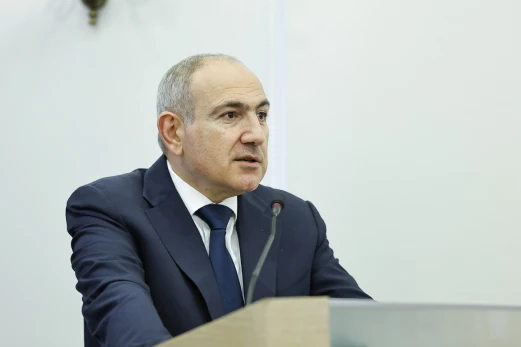By the end of 2024, it is obvious that Armenia has found itself in a period of unprecedented national challenges and uncertainty. This year was characterized by five main trends, which are more worrying than the other and emphasize the urgent need to change the governance and political direction of the country, writes the former RA Foreign Minister Vardan Oskanyan.
"The consequences of the failures of the foreign and regional policy of the Armenian government in the previous years were not only not overcome, but also deepened. Prime Minister Nikol Pashinyan's approach in negotiations with Azerbaijan symbolizes a dangerous and repeated mistake. His peace rhetoric, while laudable in theory, was accompanied by a series of unilateral concessions during the year, further emboldening Baku and weakening Armenia's position. Each new concession perhaps deepens Azerbaijan's demands and threats, moving us further away from a just peace. This course has left the country vulnerable, disappointed and almost devoid of Pashinyan's promises.
The isolation of Armenia in the geopolitical arena has only deepened, not getting the country out of the relentless cycle, from which, under the current leadership, it seems impossible to get out. The traditional allies, Russia and Iran, do not trust Pashinyan's government, and Turkey and Azerbaijan continue to treat his words with suspicion. Even the West, which seems to be providing some support, does so not out of trust, but as a result of a "marriage of convenience" because it has no better alternatives to achieve its goals.
Pashinyan's lack of diplomatic and military-political knowledge, coupled with the lack of strategy and irrational consecutive decisions, made Armenia's situation even more complicated. Without making serious efforts to create new alliances, this diplomatic inertia has left Armenia unmanageable in an increasingly complex international environment.
Although macroeconomic indicators may indicate economic resilience, this largely stems from the unintended benefits of Western sanctions against Russia, which have redirected some economic activity to Armenia. However, the majority of Armenians do not feel its benefits. The rising cost of living, stagnant wages, rising external debt, lack of foreign investment, limited job creation and extremely high taxes have not changed the plight of ordinary citizens, which is evidence of the gap between macroeconomic indicators and everyday reality.
Perhaps the most worrying trend of 2024 is democratic regression. Armenia is now sliding towards authoritarian rule. The period of hope for a democratic awakening that began in 2018 under Pashinyan has turned into a one-man rule. Despite historically low levels of public trust, Pashinyan maintains power through a parliamentary majority that shields him from accountability. This over-concentration of power reflects a deeper gap in Armenia's democratic system: the inability to hold leaders accountable or form a viable opposition.
Institutions vital to democracy, such as an independent judiciary, a free press, and an active civil society, have weakened further under Pashinyan. By suppressing dissent and centralizing power, his government has sowed apathy and disillusionment among voters. Many Armenians now question the effectiveness of the instrument of change, elections, fearing that a democratically meaningful change of power is increasingly out of reach.
Corruption, once a scourge of Armenia's political field, has taken on a more insidious and institutional nature this year, eroding the country's democratic foundations. The misuse of taxpayers' money by the ruling elite has reached unprecedented levels, diverting public funds through opaque schemes and providing unjustified bonuses and perks to loyalists. These actions are a systemic betrayal of public trust that deepen inequality and despair. This rampant culture of corruption is eroding the foundations of the country, leaving people with the harsh realization that the state has become an instrument of private gain rather than the public good.
Finally, Armenian society remains deeply divided. Polarization and mistrust, fueled by political manipulation and social tension, have created a divisive climate of hostility. This fragmentation of society weakens collective action and Armenia's ability to face challenges together.
At the beginning of 2025, attention will inevitably turn to parliamentary elections scheduled for June 2026, possibly early elections, given the volatile political environment. One thing is clear: Armenia cannot afford another year of stagnation and bad governance. The need for a change of government has never been more obvious. The coming months should be a period of self-criticism and possible rethinking for the country.
The stakes have never been higher. The imperative of the moment is to form a leadership with a clear vision of Armenia's role and tasks in the world, which will give priority to national unity, real reforms and renewed commitment to democratic principles. Armenia is an important watershed, and the decisions made in the next short period of time will determine its trajectory in the coming decades."


